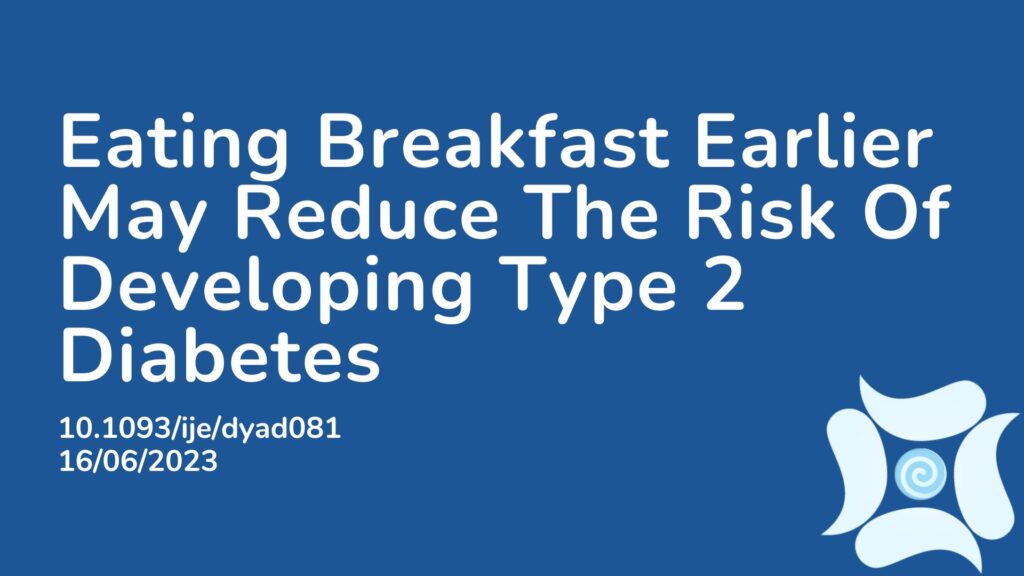Summary:
This study investigated whether there is an association between nighttime fasting, how often we eat and at what time we eat, in relation to the risk of developing type 2 diabetes. The paper looked at over 100,000 adults who were assessed via submitting a dietary record of what they ate and drank over a 24-hour period. They were also asked to record what time they ate. The results showed that after years of following the participants and their results, eating breakfast after 9am increased the risk of developing type 2 diabetes by 59%. This was compared with people who ate breakfast before 8am. These findings indicate that we can reduce the risk of type 2 diabetes by not just changing what we eat, but the time when we eat it.
Abstract:
Background: Food intake plays a pivotal role in regulating circadian rhythms, which modulate glucose and lipid homeostasis. However, studies investigating the association of meal timing and type 2 diabetes (T2D) incidence are lacking. The objective of this study was to investigate the longitudinal associations of meal timing, number of eating occasions and night-time fasting duration with incidence of T2D. Methods: In total, 103 312 adults [79% women, mean age at baseline = 42.7 (SD = 14.6)] from the NutriNet-Santé cohort (2009-21) were included. Participants’ meal timings and frequency were assessed using repeated 24-h dietary records and averaged from the first 2 years of follow-up (5.7 records/participant). Associations of meal timing, number of eating occasions and night-time fasting duration with incidence of T2D were assessed by using multivariable Cox proportional hazard models adjusted for known risk factors. Results: During a median follow-up of 7.3 years, 963 new cases of T2D were ascertained. Compared with participants habitually having a first meal before 8AM, those eating after 9AM had a higher incidence of T2D (HR = 1.59, 95% CI 1.30-1.94). Time of last meal was not associated with T2D incidence. Each additional eating episode was associated with a lower incidence of T2D (HR = 0.95, 95% CI 0.90-0.99). Night-time fasting duration was not associated with T2D incidence, except in participants having breakfast before 8AM and fasting for >13 h overnight (HR = 0.47, 95% CI 0.27-0.82). Conclusions: In this large prospective study, a later first meal was associated with a higher incidence of T2D. If confirmed in other large-scale studies, an early breakfast should be considered in preventing T2D.
Article Publication Date: 16/06/2023
DOI: 10.1093/ije/dyad081




